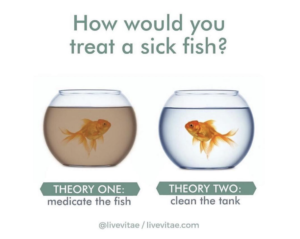1. Important study released this week…
The Cleveland Clinic recently studied the COVID-19 vaccine effectiveness among people who previously had COVID and those who hadn’t. They found that anyone who had previously tested positive for SARS-CoV-2 did not get any additional benefit from the vaccine. You can read the data here. It can be summed up by this statement… “A practical and useful message would be to consider symptomatic COVID-19 to be as good as having received a vaccine, and that people who have had COVID-19 confirmed by a reliable laboratory test do not need the vaccine.” I have questioned from very early on why anyone who had already had COVID would get the vaccine, as data was supporting the fact that those infected were showing months of immunity and appeared to have lasting protection. This is one reason I thought it made sense for those at low risk for having complications from this infection to wait on getting the shots, because I knew this data would eventually come out, and it could have helped prioritize the early limited supply of vaccines to those at highest risk. This is the most important study recently done to help reiterate what we already should know… the body’s natural immune system creates protection once exposed and infected by this virus. This study is not yet peer-reviewed, and my guess is Moderna, Pfizer, and the other vaccine manufacturers will still highly recommend that every human being get the shots. Hmmmm.
2. Great image I saw this week…
A good friend sent me a screenshot of an Instagram post she thought I’d like. She added “Thought you would like this one. Motivation for your day:)” I did like it, it is motivating, and it is a GREAT reminder that, as the guy who posted it says, “You cannot heal in the same environment that made you sick.” (Thanks, Tracy H.) I left the Instagram info on the screenshot image to give the author credit.

3. Powerful wellness tip I read this week…
I read this on James Clear’s 3-2-1 Newsletter:
“Instead of feeling that you’ve blown the day and thinking, ‘I’ll get back on track tomorrow,’ try thinking of each day as a set of four quarters: morning, midday, afternoon, evening. If you blow one quarter, you get back on track for the next quarter. Fail small, not big.” From: Better Than Before by Gretchen Rubin



